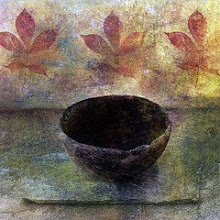 What Is Karma?
What Is Karma?The Sanskrit word karma means "voli-tional act" or "deed." The law of karma is a law of cause and effect, or an understanding that every deed produces fruit.
Karma is created by the intentional acts of body, speech, and mind. Only acts pure of desire, hate and delusion do not produce karmic effects. Once set in motion, karma tends to continue in many directions, like ripples on a pond.
Karma is not mysterious or hidden. Once you understand what it is, you can observe it all around you. For example, let's say a man gets into an argument at work. He drives home in an angry mood, cutting off someone at an intersection. The driver cut off is now angry, and when she gets home she yells at her daughter. This is karma in action -- one angry act has touched off many more.
However, if the man who argued had the mental discipline to let go of his anger, the karma would have stopped with him.
What Is Rebirth? Very basically, when the effects of karma continue across lifetimes it causes rebirth. But in light of the doctrine of no-self, what exactly is reborn?
The classical Hindu understanding of reincarnation is that a soul, or atman, is reborn many times. But the Buddha taught the doctrine of anatman -- no soul, or no-self. The various schools of Buddhism approach this question in somewhat different ways.
One way to explain rebirth is to think of all existence as one big ocean. An individual is a phenomenon of existence in the same way a wave is a phenomenon of ocean. A wave begins, moves across the surface of the water, then dissipates. While it exists, a wave is distinct from ocean yet is never separate from ocean. In the same way, that which is reborn is not the same person, yet is not separate from the same person.
Article by Barbara O'Brien

A nice question.
ReplyDeleteHindu 'Darshan' says that it is the 'desire', with which one identifies oneself. A strong identification creates the illusion of bondage and a pseudo-self. This 'self' imagins its birth and rebirth along-with the 'desire'. Desire gives continuity to a 'self', and this pseudo-self,; -to desire. "Who" gets born/ reborn? It is the desire that continues as long as it has enrgy. "Identifying" oneself with it gives it the required energy.The notion of a separate 'self' is itself illusion. Understanding this phenomenon is "Nirwaana". When one becomes 'desireless', the pseudo-self dissolves. What remains ?
Thanks for the nice post.
Regards.
Vinay.
Vinay-
ReplyDeleteThank you for your very insightful words. You have captured the essence of a very complicated concept in a few short lines.
Anicca - Nothing is permanent. Everything changes.
Anatta (or anatman) - There is no separate self. What appears separate and enduring turns out to be changeable and "composite." What we experience as identity turns out to be a changing constellation of varying influences.
Dukkha-to believe otherwise, to cling to any thing or anyone (including yourself), expecting it to be enduring, whole, and a self, is to create and amplify suffering. And we all do it-at least until we become, we hope, enlightened.
Blessings,
d